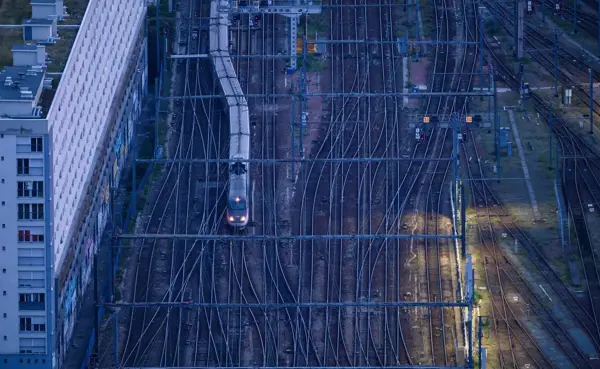
Trade unions representing workers at France’s national rail operator, SNCF, announced plans on November 9 to hold a significant strike starting December 11, which may disrupt train services across France during the peak Christmas holiday period.
The strike call comes as unions express concerns about the dismantling of Fret SNCF, the freight division of the state-owned railway company, and demand a moratorium on this restructuring process. This move signals potential travel chaos for holidaymakers relying on France’s railway network for end-of-year journeys.
The decision to strike is spearheaded by the four major unions representing railway employees: CGT-Cheminots, Unsa-Ferroviaire, Sud-Rail, and CFDT-Cheminots.
In a joint statement provided to Agence France-Presse, the unions underscored their opposition to the restructuring plan, which was developed by the French government in coordination with the European Commission.
They warned that the strike is scheduled to begin on December 11, with a shorter initial strike set to occur from November 20 to November 22 as a preliminary show of protest.
The unions argue that a moratorium on the dismantling of Fret SNCF is essential to revisit the restructuring terms and ensure the long-term sustainability of the freight services.
“A moratorium is possible and necessary to allow the various players to get back to the table and find ways of guaranteeing not only the continuity of Fret SNCF, but also its development over the longer term,” the unions emphasized in their statement.
The restructuring process for Fret SNCF, scheduled for completion by January 1, 2025, will see the division divided into two new entities: Hexafret and Technis.
This split, according to the government, aims to address European Union regulations and prevent Fret SNCF from facing potential liquidation.
The division, which employs around 5,000 workers, has faced challenges in maintaining financial stability and has relied heavily on government subsidies, raising concerns in Brussels about potential breaches of EU state support rules.
The European Commission has recently launched an in-depth investigation to determine whether the subsidies provided by the French government to support Fret SNCF contravene EU competition laws.
This restructuring plan represents an attempt by the French government to meet EU conditions, although it has sparked backlash from unions who see the dissolution of the freight division as a potential risk to job security and the continuity of services.
French rail unions have a history of striking during holiday periods, and this latest move recalls similar actions in recent years. In February 2023, a strike by train controllers left 150,000 passengers stranded, significantly affecting holiday plans.
A previous strike during Christmas 2022 resulted in travel disruptions for 200,000 people, underscoring the unions’ leverage in bargaining with the government.
The current strike action is not limited to Fret SNCF issues; unions are also raising concerns about the opening of regional train services to private competition.
This liberalization plan, which aligns with EU directives, has been met with resistance from rail workers who fear it could result in less favorable working conditions and job losses.
As December approaches, travelers in France may face the difficult prospect of disrupted travel plans unless a resolution between SNCF and its unions is reached.
The unions’ insistence on a moratorium suggests they are prepared to push forward with the strike unless the government provides concessions.
The outcome of these discussions could have far-reaching impacts, not only on the holiday season but on the future of France’s rail infrastructure and labor relations within the industry.